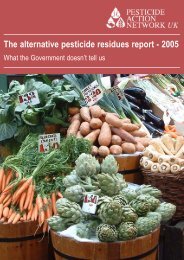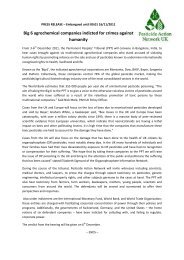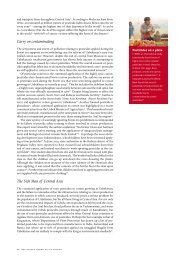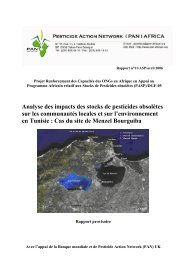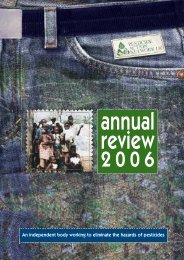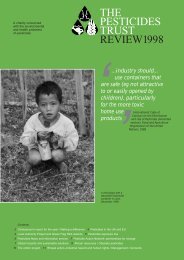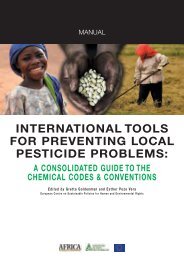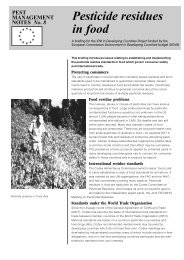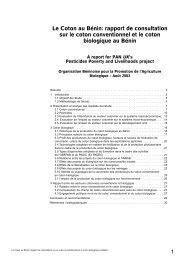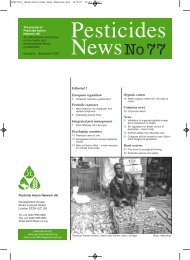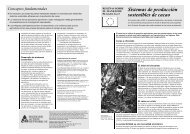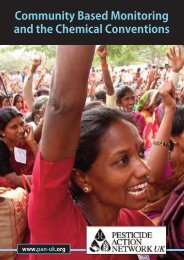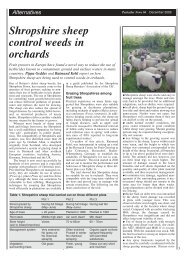Tanzania Multi Stakeholder Map - WebNG
Tanzania Multi Stakeholder Map - WebNG
Tanzania Multi Stakeholder Map - WebNG
Create successful ePaper yourself
Turn your PDF publications into a flip-book with our unique Google optimized e-Paper software.
Initially, she gave a brief history of AGENDA, which started as a DANIDA project<br />
and reconstituted to become an NGO on completion of the project to focus on the<br />
environment areas at national level, and as it grew it engage itself in International<br />
fora. AGENDA became member of the International POPS Elimination Network<br />
(IPEN) in the course of negations that led to adoption of the Stockholm<br />
Convention. AGENDA has organised a number of workshops on POPs and it is<br />
participating as an Anglophone Africa hub for the Global NGOs project:<br />
“International POPs Elimination Project (IPEP)” that promote active and effective<br />
CSOs/NGOs participation in implementation of the Stockholm Convention. She<br />
also outlined that the development of chemical conventions was brought about<br />
by the increasing global chemical problems, and the key problem is persistent<br />
organic pollutants (POPs). Intergovernmental Forum on Chemical Safety (IFCS)<br />
conducted in depth study on POPs the result of which was the initiation of<br />
negotiation for a legally binding instrument, the Stockholm Convention, which<br />
was spearheaded by UNEP. International POPs Elimination Network (IPEN) was<br />
developed in 1998 by a group of NGOs around the world for lobbying for a strong<br />
Convention.<br />
Ms Saada emphasized further that, it is for the above reasons AGENDA came to<br />
know Pesticide Action Network (which is also a participating organisation in<br />
IPEN) and together they are now working on this project Pesticide and Poverty<br />
with the main objective of assisting developing countries to effectively implement<br />
International Chemical Conventions and Processes in order to integrate an<br />
environmental dimension into their development priorities and to promote<br />
sustainable livelihoods in rural areas.<br />
She pointing out that the expected outputs of the workshop are: increased<br />
stakeholders awareness on the project; current status of convention<br />
implementation at national level; plan of activities and stakeholder roles and<br />
responsibility in the project; complete National <strong>Stakeholder</strong>s <strong>Map</strong>; capacity<br />
building needed for stakeholders and potential case studies identified.<br />
She concluded by expressing her sincere appreciation for the financial and<br />
technical support from PAN UK, PAN Africa, PAN AP, GEF and European Union.<br />
2.2 Opening Speech<br />
The director general of the National Environment Management Council (NEMC),<br />
Dr. Magnus Ngoile on behalf of the Senior Permanent Secretary, Vice Presidents<br />
office, officiated the opening ceremony of the workshop. In his opening speech,<br />
he started by recognised the presence of the media and praised the role played<br />
by AGENDA and TPAWU in issues related to environmental protection. He also<br />
highlighted the magnitude of the obsolete stocks of pesticides from the inventory<br />
carried out in 1997 and current efforts to clean up the stocks i.e. the African<br />
2




